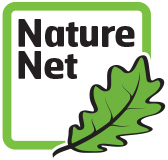
When you think of gardening and growing your own food, do you also think of your cultural heritage, and the deep history attached to using plants to feed one’s family? Maybe today I can convince you that gardening (and foraging!) can be a cultural practice that connects people together through time and space, evoking cultural roots and a deep sense of community belonging that has tied people together for centuries. Maybe I can also show you how urban agriculture and efforts to reconnect us with sustainable food production can help to build community resilience, making us stronger, more adaptable, healthier, and better connected to each other and the land we live on. Community gardens and urban agriculture are becoming commonplace as people come together to grow food that can be shared with the local community, providing agency and opportunity for healthier eating to many families who may otherwise find it difficult to access affordable healthy food options. This is not an entirely new way of living, as many cultures throughout time have grown and shared food in their communities as a way of developing a shared resilience in the face of adversity.
The importance of plants to many families and cultures cannot be understated. Indigenous groups across the world place high value on the knowledge of plants and their uses. In many parts of the world, subsistence farming is still the main way of life. Immigrants who brought seeds with them carried the knowledge and culture of their native plants and food sources into their new lives. Growing food today connects us to the people of our past as well as the people of our present, as we use the knowledge and valuable seeds that our ancestors once maintained to connect and feed those around us.
Are you feeling more connected to your tomatoes yet?
The Badger Rock Neighborhood Center, which works closely with Nature Net member Rooted, has many free food and gardening workshops that aim to connect the community with plants and culture. Their programming highlights sharing cultural food dishes prepared with fresh grown vegetables, and teaches gardening practices that connect to the earth, your own roots, and a communal sense of resilience. This video from Badger Rock focuses on building community resilience specifically through seed saving, and this one is on using plant knowledge to access wild sources of food and medicine.
Badger Rock’s video mentions that seed saving can be a cultural process that maintains the many unique varieties of plants, connecting us to the past and to each other as we share the seeds. “Heirloom” vegetables are an example of maintaining seed collections that our ancestors used before many edible plants were commercialized and the genetic diversity reduced. There is historical conservation value in the maintenance of seeds and plants too, as saving seeds in the right conditions can mean preserving a plant species (and therefore the history of the land and its diversity) for generations to come. Seed banks, like the Svalbard Global Seed Vault and the Millennium Seed Bank store seeds in conditions that can keep them viable indefinitely. These facilities were designed to withstand a nuclear blast, because we as a society understand the incalculable value that plants have in our lives, and the history they hold.
If you’re interested in gaining more plant knowledge, either to build your own resilience or help contribute to your community, there are many ways to do so.
- If you live around Dane County, check out the community gardens supported by Rooted and partners, and if not, see if there are similar opportunities in your area.
- There are many books that cover the topic of gardening for resilience, like The Resilient Gardener, that can help with foundational knowledge of how to get started.
- Social media is becoming a great way to share and learn about gardening and foraging practices, too. Currently, my favorite person working to build resilience through a return to cultural knowledge about plants is Alexis Nikole, otherwise known as @blackforager. Check her out for entertaining and educational posts about using local plants for food, and stay curious for more plant knowledge.
In Case You Missed It…
- The Henry Vilas Zoo helped 21 low-income students from 5 grades access their online school, provided meals onsite, and made a difference in their school experience.
- The UW Arboretum has been recognized as a National Historic Landmark by the National Parks Service, because of its history in restoration, conservation, and Leopold’s land ethic.
- Olbrich Gardens is hosting one virtual lecture per month on a variety of gardening topics. It’s not too late to sign up for the upcoming presentations, including this month!
 |
 |


